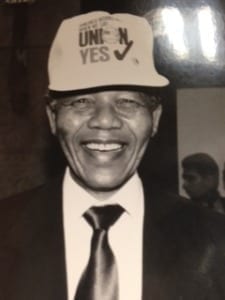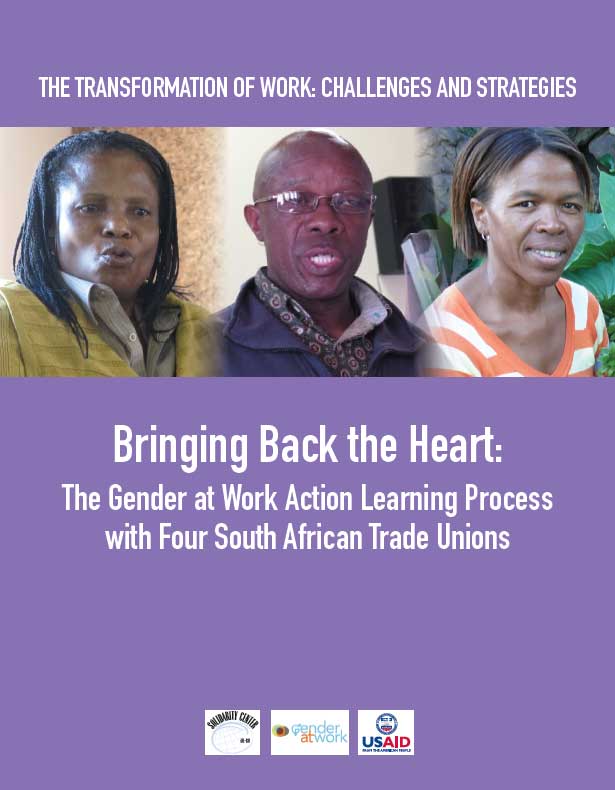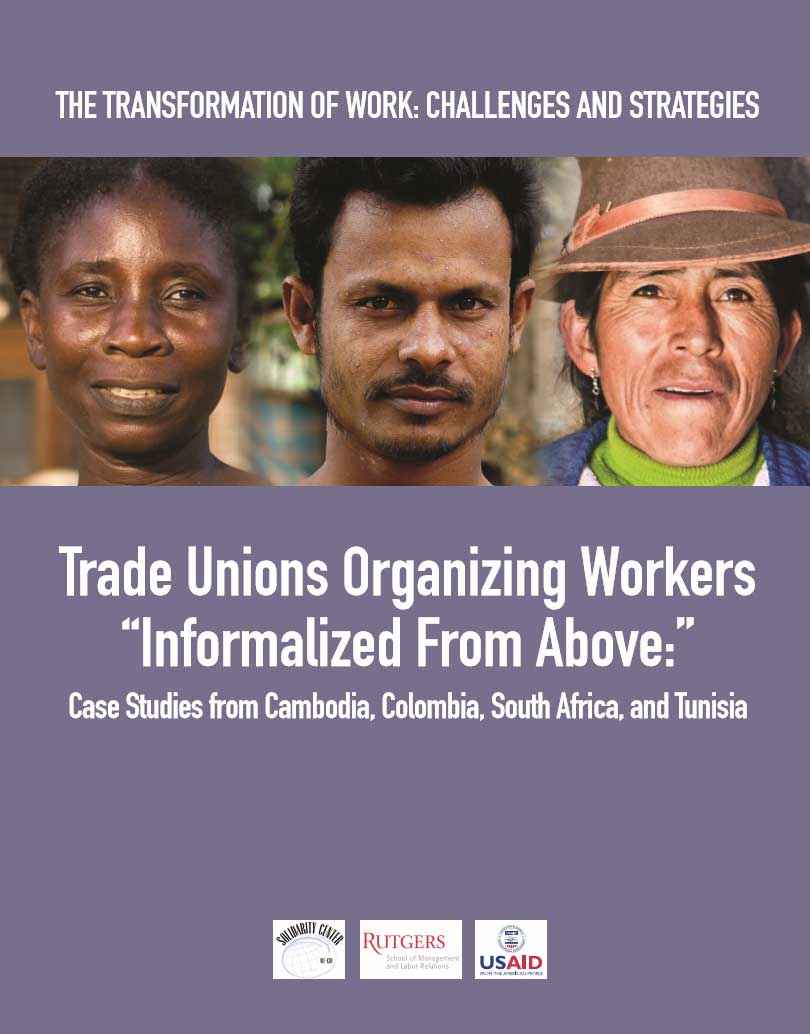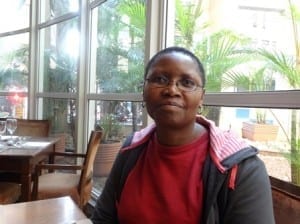Dec 5, 2013
 The Solidarity Center today marks the loss of former South African President Nelson Mandela, whose unyielding struggle to attain equality, human dignity and social justice for his countrymen and women will remain an inspiration to all who still carry on the fight for human rights.
The Solidarity Center today marks the loss of former South African President Nelson Mandela, whose unyielding struggle to attain equality, human dignity and social justice for his countrymen and women will remain an inspiration to all who still carry on the fight for human rights.
“While the world has lost a great statesman and unwavering warrior for freedom, we have not lost President Mandela’s impact on and contributions to his country—and to vulnerable and exploited people everywhere,” said Shawna Bader-Blau, executive director of the Solidarity Center. “He showed the world the true meaning of liberation by taking on all forms of oppression and championing equality. We are awed by his determination and celebrate his extraordinary accomplishments, which are a gift to the world.”
Over the coming week, Solidarity Center staff will join in commemorations of President Mandela’s life and legacy in Washington, D.C., and in field offices around the world.

Nov 24, 2013
Four South African unions took part in a unique process with the South Africa Gender Action Learning Program and Labour Research Service to challenge male–dominated, hierarchical cultures. This report describes the step-by-step journey that led to more women joining unions and taking on leadership positions—and ultimately becoming inspired to carry on the hard work of ensuring gender equality remains an integral part of their unions.
Download here.

Oct 24, 2013
Four case studies examine successful union organizing among workers whose jobs have been privatized, outsourced or contracted out. This Solidarity Center report is part of a multiyear research project, funded by the U.S. Agency forInternational Development, to study the informal economy, migration, gender and rule of law together with research partners Rutgers and WIEGO.
Download here.
Jul 30, 2013

Gertrude Mtsweni, COSATU national gender coordinator (click here for video). Credit: Tula Connell/Solidarity Center
Nearly 100 union and community activists from 20 countries are meeting in São Paulo, Brazil, today and tomorrow at a Solidarity Center Conference to discuss strategies for achieving gender equality in their unions and at the workplace.
“Women´s Empowerment, Gender Equality and Labor Rights: Transforming the Terrain” is bringing together dynamic leaders like Gertrude Mtsweni, national gender coordinator at the Congress of South African Trade Unions (COSATU), who says she wants to share her experiences with others and learn from them about educating and mobilizing around gender equality and worker rights–not only for women in unions, but for all women.
“I want to talk about the woman who´s unorganized, the woman who is unemployed, the woman in the informal sector who is not recognized by labor laws,” she said in a Solidarity Center interview before the conference. (Watch a video of Mtsweni.)
For Julia Quinonez, a representative of women workers in Mexico´s maquiladoras and part of the Comite Fronterizo de Obreras since its inception in 1986, meeting with conference participants from 20 countries is a welcome opportunity to learn from union leaders and others in nongovernmental organzations. The variety of groups involved “shows us we´re in a new moment now, we´re in a new phase to build unions that are more inclusive.”
Stop back for more conference updates
Mar 7, 2013
Although post-apartheid South Africa has one of the most progressive constitutions in the world and women comprise more than 40 percent of Parliament, the country also has high rates of gender-based violence, including “excessive rates of female homicides,” according to the World Health Organization.
Most recently, the brutal rape and murder of 17-year-old Anene Booysen in February and other high-profile killings have brought the issue of gender-based violence to national attention. Two men have been arrested for the death of Booysen, who worked at a construction company in a small rural town southeast of Cape Town, South Africa.
Around the world, in their homes and at the workplace, women are highly likely to experience violence—up to seven in ten women globally will be beaten, raped, abused or mutilated in their lifetimes. This March 8, International Women’s Day, activists across the globe are focusing on ending violence against women—and in South Africa, working women and their unions are among the leaders in events across the nation.
Demanding a “proactive, transparent strategy to halt the rape and violation of women and children,” the Federation of Unions of South Africa (FEDUSA) in February laid out steps toward a national strategy to combat the epidemic. “Violence against women is a harsh reality in South Africa,” says Martle Keyter, FEDUSA vice president of gender. Booysen’s murder and all such acts “perpetuate the violent disregard of women’s constitutional and universal human rights to equality, freedom and safety,” she said.
Members of FEDUSA and the Congress of South African Trade Unions (COSATU) are heading up rallies and other events across South Africa. (Follow their actions on Twitter with the hashtags: #NoToRape #StopRapes #COSATU.)
In commemoration of International Women’s Day, the International Labor Organization (ILO) is highlighting the issue of sexual violence at the workplace and includes the experience of Sisandra, 28, a telecommunications technician in South Africa. “My executive manager came to the office and asked for my number and I gave it to him,” Sisandra said. “I did not ask him why he wanted my number as he is a senior person and respected by all in the company because of his position. He then started touching my breast and private parts … I felt violated and scared. Even though I said I was going to report this, I felt I could not because I thought I could easily lose my job if I told.”
As in many nations, researchers say the culture of violence against women in South Africa involves a combination of “a historical culture of ‘might is right’…an unequal relationship between women and men, lack of adequate childcare … and high male unemployment.” Underlying all of these issues is economic inequality, in which a large swath of the population has diminishing or no access to family-supporting jobs and to fundamental rights, an explosive and injurious environment that frequently undermines people’s view of themselves and those around them.
The United Nations Commission on the Status for Women is meeting now in New York to review previous resolutions and take new steps toward the elimination of discrimination against women. A 100-member trade union delegation of women from Italy, Senegal, Canada, the United Kingdom, Morocco, Brazil, Singapore and other countries is attending the meeting as part of an
International Trade Union Confederation (ITUC) delegation. The ITUC is demanding governments “live up to their international and national obligations on the prevention and elimination of violence against women and girls.” The ITUC says that last year, the commission “failed to reach agreement because of conservative governments questioning the very principle of gender equality.”
On the blog, FEDUSA Writes, a poster notes that “the regular headlines witnessed in South Africa of women young and old, poor and rich, black and white getting beaten, raped, or murdered,” mean that “it is time for us to call on our Government to turn their political rhetoric and timely outrage into concrete actions…. We desperately need to find ways in which to change our behaviour, change the patriarchal nature of our society and radically shift the existing power relations that make it necessary for men to be tough and violent in order to really be men.”
 The Solidarity Center today marks the loss of former South African President Nelson Mandela, whose unyielding struggle to attain equality, human dignity and social justice for his countrymen and women will remain an inspiration to all who still carry on the fight for human rights.
The Solidarity Center today marks the loss of former South African President Nelson Mandela, whose unyielding struggle to attain equality, human dignity and social justice for his countrymen and women will remain an inspiration to all who still carry on the fight for human rights.



